A Certain Late Discovery
Was Jacques Derrida a Jewish thinker? Although it has often been asked, it is a bad question, but, as it turns out, not for the most obvious reasons, which therefore makes it much more interesting.
Derrida, the originator of the philosophical method known as “deconstruction,” passed away less than a decade ago after one of the most remarkable academic careers in the 20th century. Nonetheless, it is already difficult to recall just how central and divisive a figure Derrida was throughout the humanities, especially here in America. His writing style, with its sudden shifts from the ponderously Delphic to the playfully mischievous and back again, was aped, praised, and ridiculed, while his campaign against what he called the “metaphysics of presence” in the Western philosophical tradition shook whole academic fields (especially but not only in literature) while leaving others (in particular, analytic philosophy) defiantly untouched.
Derrida, Kirby Dick and Amy Ziering Kofman’s 2002 documentary (now helpfully archived on YouTube) provides both a vivid reminder of the philosopher’s persona and a preemptive caveat against books such as Benoît Peeters’ Derrida: A Biography. A few minutes into the film Derrida delivers of himself the following speech, suggesting more than a bit of skepticism about the biographical enterprise:
We should not neglect the fact that some biographies written by people who have authority in the academy finally invest this authority in a book which—for centuries sometimes—after the death of an author represent the truth, “the truth.” Someone interested in biography writes a life, “life and works” . . . well documented, apparently consistent, and it’s the only one published by—under the authority of—a good press. And then . . . his life image is fixed and stabilized for centuries. That’s why I would say that the one who reads a text by a philosopher, for instance a tiny paragraph, and interprets it in a rigorous, inventive, and powerfully deciphering fashion is more of a real biographer than the one who knows the whole story.
Although in his writings Derrida was not entirely dismissive of studying the lives of thinkers, one still wonders what Benoît Peeters was thinking when he chose to write his book—precisely the sort of “well documented, apparently consistent” account of Derrida himself that the philosopher found so unhelpful compared with the tiniest bit of close reading.
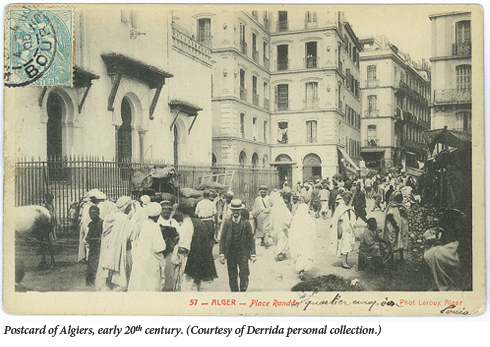
And yet the basic facts are helpful. Paradoxically, the book is a success because it is so straightforward. Peeters takes the singular enigma of the founder of deconstruction and makes him grist for an entirely conventional biographer’s mill. A longtime acquaintance of Derrida with practice at writing lives (including Alfred Hitchcock’s and Paul Valéry’s), Peeters accumulates information, establishing a basic itinerary. He cites correspondence for what it reveals about Derrida’s private sentiments. And he narrates meetings with other intellectuals. Perhaps most salaciously, Peeters confirms Derrida’s love affair with fellow philosopher Sylviane Agacinski, the torment he experienced when she bore him a son, and the bitter recriminations that followed through to the end of his life, when Derrida withheld his support from socialist presidential candidate Lionel Jospin, who had raised the child with Agacinski after marrying her.
All told, it is useful to have Derrida’s life reduced to reportage with so little ceremony or judgment. Peeters mostly leaves interpretation up to us, but there are a few possibilities his facts rule out. This is especially so when it comes to a long-standing debate about how “Jewish” Derrida’s thought is. For the book shuts down nearly every hypothesis one might initially float about a thinker too often presented as some sort of Jewish sage or postmodern midrashist.
Jacques Derrida was born at El Biar in the suburbs of Algiers and, later in life, he often claimed to suffer from “nostalgeria”-as he put it in one of the neologisms, simultaneously playful and serious, at which he excelled. Yet while he loved the bright austerity of the Algerian landscape, and drank deep at the well of French Orientalism in his youth, it is hard to detect much that would help identify Derrida’s thought as flowing out of North African Jewish traditions, or even Jewish ones more broadly.
As a teenager, Peeters reports, “Jackie” became enamored with André Gide’s The Fruits of the Earth, telling an interviewer later that it was a sort of “Bible” for him—or perhaps better: a “counter-Bible.” Like The Immoralist, Gide’s more famous novel of liberation, The Fruits of the Earth offered a paean to sundrenched North Africa as the place where bourgeois taboos are optional. It mattered to Derrida, in his own words, as one of those “declarations of war on religion and families.”
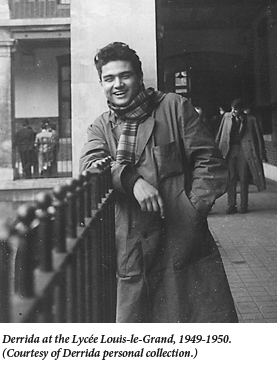
In other words, if he was descended from Algeria’s Jews, Derrida learned from Gide that the French colony could also stand for emancipation from the strictures of God and propriety. Not that Derrida had much to liberate himself from when it came to the Jewish religion. His family, Peeters tells us, came to North Africa after the Spanish Inquisition. The French colonized the area in 1830, and forty years later passed the Crémieux decree, which gave Jews full French citizenship—a fateful policy that
“civilized” the community as the rest of the indigenous population was mired in second-class status. Derrida’s father, like his grandfather, worked in wine shipping in Algiers, arranging transport on behalf of the vast grape cultivations of the interior. Peeters calls the family’s religious home life “low key,” and while Derrida cherished the Sephardic holiday customs of his family, he knew himself to be the product of a vast social transformation that had revolutionized Algerian Jewry across a few generations.
In his first decades Derrida’s Jewish background may have mattered most when his family strenuously attempted to avert his marriage to Marguerite Aucouturier, a non-Jew and the sister of a Parisian school friend. When his uncle wrote him a letter begging Derrida not to go through with the marriage—for what about the children?—Derrida responded angrily. Although this letter is no longer extant, Peeters quotes his uncle’s reply:
Having written to you in familiar everyday words, you now reply, after dissecting and carefully analyzing them (I suppose you’re just doing your job) a long bitter letter, very ‘uptight’ and sometimes quite impertinent in tone.
As Peeters remarks, Derrida seems to have written the letter in the style “that he would later make his own in philosophical polemics.” Derrida and Marguerite took their vows with a single friend as a witness in Cambridge, Massachusetts, on a year abroad in 1957. (The other highlight of his time there was his reading of James Joyce in Harvard’s Widener Library.)
This leaves one major fact out, of course. As a child, Derrida suffered from wartime anti-Semitism, especially after the Vichy regime revoked the Crémieux decree in 1940. In his memory, Derrida singled out the day the escalating imposition of numerus clausus policies—harsher in Algeria than even under Vichy rule generally—resulted in his expulsion from school in October 1942. Yet the Allies invaded North Africa within a couple of weeks, conquering it over the next months. Algerian Jews had an awful wait through the spring and summer for the Crémieux decree to be reinstated. General Henri Giraud, who had helped conquer the area for the Allies, hoped to make its abrogation permanent, but Charles de Gaulle finally put him in his place. Given the often—virulent anti-Semitism of the French settler population before and after, wartime events confirmed for Algerian Jews their deep allegiance to the emancipationist French state.
Anyway, if Derrida experienced his school expulsion as an “earthquake,” it most certainly didn’t fortify his (non-existent) interest in the Jewish religion. Sent to Lycée Maїmonide, a school formed by purged Jewish teachers, he immediately decided to skip. “It was there,” he told a friend later, “that I began to recognize—if not to contract—this ill, this malaise, the ill—being that, throughout my life rendered me inapt for ‘communitarian’ experience.” Instead, Derrida hung out in the Casbah while he was supposed to be preparing for his bar mitzvah—a rite of passage that could have been his farewell to Judaism had later events not intervened.
Derrida was eventually to follow the path the state offered him to Paris where, leaving aside his military service, his American year, a short teaching stint in Le Mans, and his later travels, he lived until he died. By his own testimony, anti-Semitism in metropolitan France was far less serious than what he knew from home. As he told one correspondent, the “saying (unfortunately common in Jewish circles), ‘everything not Jewish is anti-Jewish,’ was not true.” Even the stigmatized identity that (as Jean-Paul Sartre famously claimed) anti-Semitism prompted in many Jews “moved to the background.”
If Peeters’ biography follows Derrida’s academic career that ensued through useful historical scavenging, Edward Baring’s new book is a very different matter. Confronting the claim that deconstruction is something like a “Jewish science,” as Sigmund Freud worried psychoanalysis might seem, Baring says, a bit slyly, there is better documentation for other sources. Relying on the same precious archives as Peeters but with much more philosophical depth, it turns out that Baring has in mind Christian rather than Jewish origins.
The Young Derrida and French Philosophy is, like Peeters’ biography, an entirely un-Derridean exercise, but in a different way. Baring is openly nervous about applying an ordinary historical interpretation of a figure who denied (most notably in his famous spat with Berkeley philosopher John Searle) the determinative role of context over utterances. Though he courts even more controversy in treating Derrida’s texts (rather than life) according to ordinary scholarly canons, Baring’s success is more remarkable. In this masterful book, he achieves the best picture available of the origins of deconstruction.
Baring starts out from the premise that, in spite of his colonial and Jewish ancestry, Derrida needs to be understood as a figure of the center: of the Parisian capital, of the mainstream of French philosophy after World War II, and especially of the elite institutions by and through which French thought was made in the 20th century. After a couple of years of lackluster performances on the advancement exams, Derrida made it to the École Normale Supérieure, where he returned to teach and wrote his most significant early works.
In particular, Baring argues that the philosophical world Derrida entered was one divided between Christian and Marxist philosophers—a cleavage in whose evolving terms the young thinker defined himself for two decades. The most fascinating and unexpected material in The Young Derrida shows how deeply, starting with some of his earliest student papers, Derrida adhered to a Christian existentialist emphasis on human finitude and abjection. Indeed, deconstruction may still bear the marks of this early influence, Baring contends.
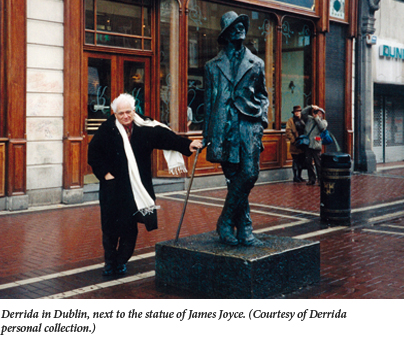
At a minimum, it was because Derrida rejected the existentialist apotheosis of human liberty and the Marxist certainty in historical reconciliation that the Christian option beckoned. Baring’s rich chapters cover important issues such as Derrida’s reckoning with the two key phenomenological masters, Edmund Husserl and Martin Heidegger, and demonstrate how the Christian/Marxist split, so strong at Normale Sup at the time, was crucial for him. Baring is highly persuasive in his suggestion that it was the resources for the claim of human insufficiency and impurity in Christianity—both in its great philosophers and in now forgotten Christian writers like René Le Senne—that conditioned Derrida’s lifelong desire to indict all metaphysical claims, even those made by religion itself.
Focusing so brilliantly on his story of mainstream debates and elite institutions, Baring unfortunately omits an equally important source for deconstruction. From childhood Derrida was as much interested in literature as philosophy, in particular certain transgressive, post-surrealist traditions represented by Antonin Artaud, Georges Bataille, and Maurice Blanchot. (On his deathbed, suffering from pancreatic cancer, Derrida was cheered by rumors that he might receive the Nobel Prize in Literature, reporting that he had always cherished most the hope of leaving a monument in the history of the French language.)
Given how intellectually unpromising the Algerian Jewish roots that Peeters lays bare were, Baring’s emphasis on Derrida’s Christian interests sets an indispensable baseline for considering the sort of Jew he made himself. Baring closes The Young Derrida in 1967, the remarkable annus mirabilis in which Derrida published Of Grammatology, his best-known book, alongside two others. And so he leaves this problem for others to take up—except that a crucial period in the story of Derrida’s interest in Judaism had already transpired.
It may have been due to early onset nostalgeria that the first sign of any positive interest in Judaism on Derrida’s part came shortly after the Algerian War. During the conflict itself, he had favored a brokered solution that would preserve the long-term coexistence of Arabs and Jews alongside the newer Christian settler population. But after the independence vote in 1962, he had returned home and helped his parents and relatives, whom history made into so-called pied noirs, hastily pack their bags.
It was in early 1963, just a few months after these events, that Derrida wrote on the Egyptian-born Jewish poet Edmond Jabès, who had himself fled his North African homeland, in this case after the 1956 Suez Crisis. Derrida emphasized that Jabès made “a certain late discovery of a certain way of being part of Judaism.” Derrida, it seems, was also speaking about himself. This “certain way” was one that reclaimed Jewish textualism without Jewish belief, for “Judaism and writing are but the same waiting, the same hope, the same depletion.” That it was an emphatically unorthodox reading, Jabès—who noted that his “blood brothers” denied his Judaism if it did not involve going to shul—knew well. Derrida self-consciously welded his emerging censure of metaphysics, whose roots, as Baring shows, were entirely elsewhere, to the imaginative Judaism of Jabès’ poetry.
Much has been written about how Derrida also encountered the writing of Lithuanian-French-Jewish philosopher Emmanuel Levinas around this time. But while Derrida acknowledged that Levinas’ thought can “make us tremble,” his response to it was ultimately negative. It was especially so when it came to Levinas’ invidious contrast of Judaism with “Greek metaphysics,” which Derrida famously countered with James Joyce: “Jewgreek is greekjew. Extremes meet.” And it is surely noteworthy that Derrida’s engagement with Jabès occurred just before he chose to write on Levinas. His praise for Jabès’ creole (and atheist) Jewishness influenced Derrida’s skepticism towards Levinas’ appeals to a more autochthonous (and theist) Judaism.
In the 1980s and 90s, Derrida often returned to topics that concerned Jews or Judaism: negative theology, German neo-Kantianism, Weimar Jewish intellectuals, and many others. Scholars still debate whether Derrida took a “religious turn” late in his life, which (if it occurred at all) intersected his definite preoccupation with Judaism in interesting ways. The astonishing range of topics and genres he took up coexists with a fascinating continuity in his appeal to that same “certain way” he had found in Jabès of regarding Judaism. It came after his childhood ignorance of—and adolescent disaffection from—his community’s faith, and after he had shrugged his shoulders about anti-Semitism’s significance, though he had been its victim in wartime. There can be little doubt of the biographical centrality of the moment in 1963 when Derrida finally and suddenly found Judaism eligible for retrieval—and worthy of it.
Respectful of their protagonist, Baring and Peeters combine to explain the trajectory of the man and the makings of his thought. Since their agendas are elsewhere, neither writer says anything about the relevance of Derrida’s career for Jewish life or even Jewish philosophy. But each helps us to take up the problem.
To be sure, not everyone grants monumental or even significant intellectual importance to Derrida’s thought; it has always had detractors. Now that its most superficial vogue is long since over, it is possible for it to be given a more even-handed assessment. One thing is certain: The historical and biographical fact that the origins of deconstruction lie elsewhere does not make deconstruction irrelevant for Jewish thought and life. It would be incredibly tedious if the main purpose of such discussions were to claim or disclaim Derrida (or others) for the tribe.
In exceptional books a few years ago, Sarah Hammerschlag and Dana Hollander shifted the argument to philosophical ground, offering powerful cases for Derrida’s relevance to making sense of Jewish particularity in a world of cosmopolitan identities—and for showing how Judaism is a crucial source in current debates. Others contend that Derrida wanted to offer a heroically unadulterated philosophical atheism, to which his affection for various Jewish resources would connect in a much more complicated way. But no matter which of these options is right, the Judaism at issue was of Derrida’s own making. And of course, this is unsurprising. If Derrida insisted on anything, it was that there is nothing that stands independent of its own interpretations.
It is also true that this principle resonates with Judaism itself, whether or not its source lies there in Derrida’s case. Jabès was perfectly correct in his romance of Jewish textualism and interpretation. Traditions depend for their very continuity on highly creative appropriations. “Classical Judaism expressed itself: it did not reflect upon itself,” Gershom Scholem once observed. “To the mystics and philosophers of a later stage of religious development Judaism itself has become problematical, [and so] they tend to produce an ideology of Judaism, an ideology moreover which comes to the rescue of tradition by giving it a new interpretation.”
Yet Derrida did not explain—for that matter, neither did Scholem—whether there are boundaries to interpretation. Derrida was much better at showing that it is impossible to reduce a text to its meaning and that attempts to draw a hard and fast distinction between one thing and another always end up undoing themselves—processes that, Derrida insisted, leave nothing pure and unscathed. Can there be some ideologies that are so profound in their revisions that they betray rather than save a tradition? It is this question that has to be answered to know whether Derrida was a Jewish thinker. But he didn’t answer it. If it is a bad or even a boring question, it is because one thing he taught is that there is no way to draw a boundary that would definitively exclude him.
Suggested Reading
Visualizing Hasidism
Everything contains sparks of the divine, the Ba’al Shem Tov and his disciples taught; therefore, everything—even material things—can be sanctified.
Letters, Winter 2021
Et Tu, Jewish Review?, The Akedah Conundrum, Crazy Rich Mizrachim?, Josephus’s Jonah, and More
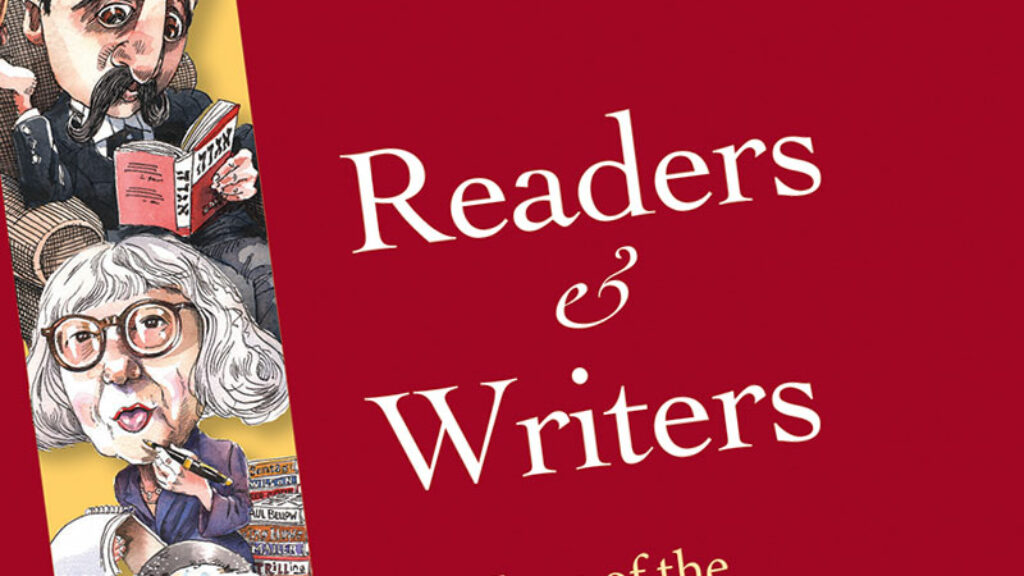
The Way We Live Now
One uncanny thing about this moment is that no one has yet put the experience we are all having—collectively yet separately, sometimes on Zoom—into articulate words.
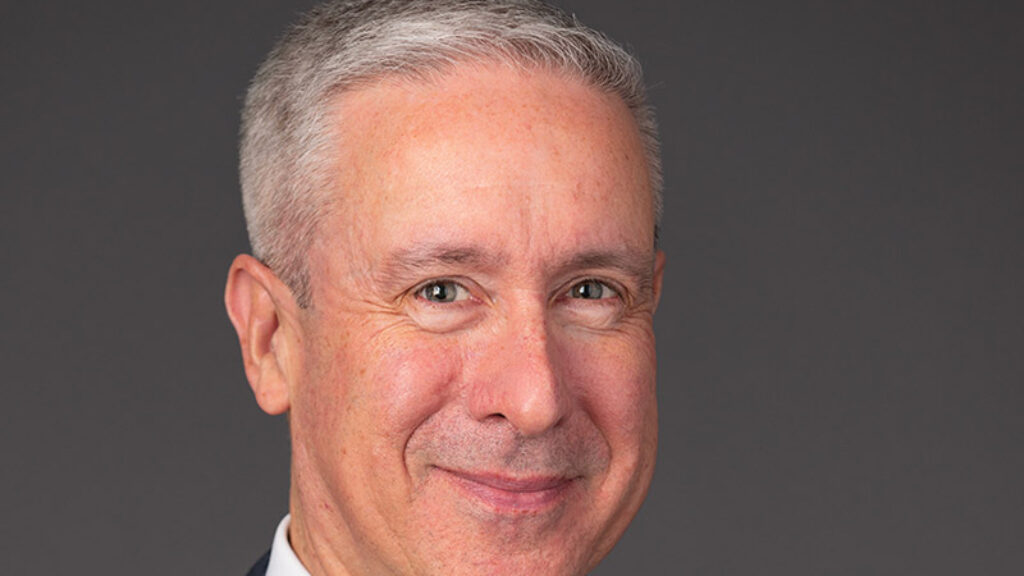
It’s the End of the World as We Know It
Can liberal Judaism survive and thrive in the digital age?
Comments
You must log in to comment Log In